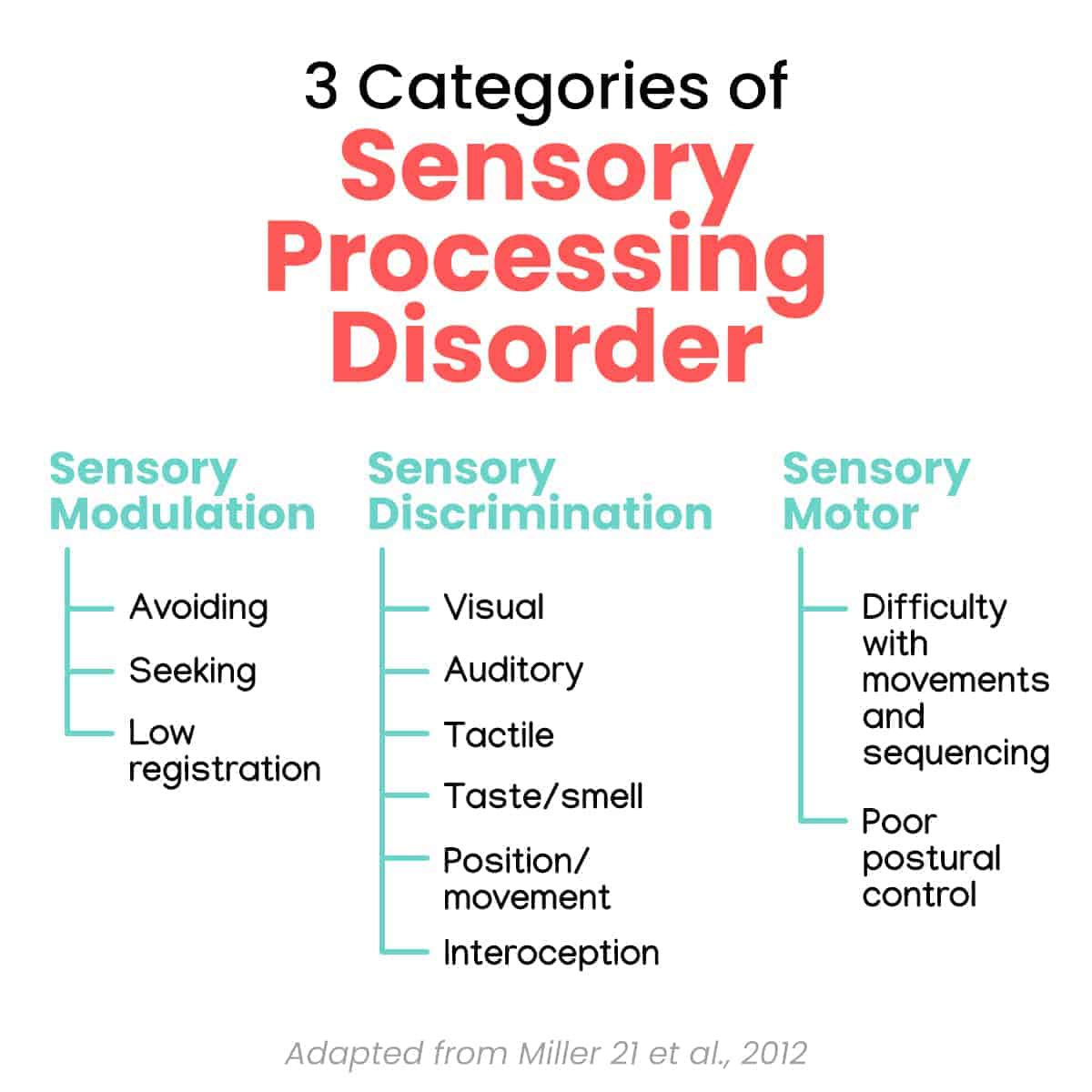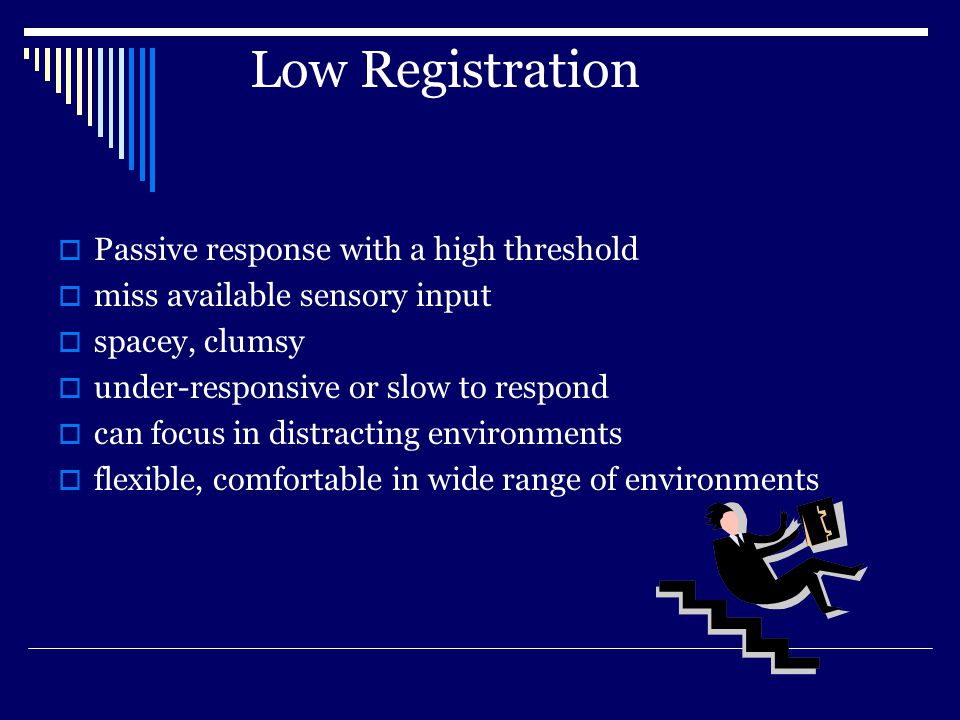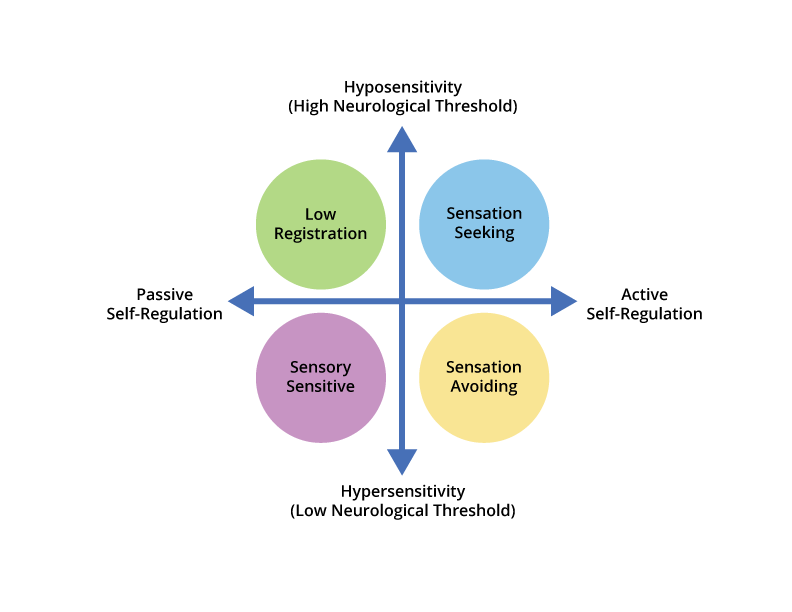In human experience, our senses serve as the gateway to the world. The touch of a loved one’s hand, the aroma of freshly brewed coffee, the symphony of sounds in a city – these sensory cues enrich our lives and shape our perception.
However, a lesser-known phenomenon can alter this intricate sensory balance: low registration.
Sensory low registration is a term used to describe a person’s brain processing information from their senses in a different way than most people,” Vicky Robinson, children’s occupational therapist.
It’s a “result of the brain’s sensory system losing track of or not paying attention to the sensations it receives,” explains Alisha Grogan, licensed pediatric occupational therapist. Sometimes it affects one particular sense, and other times it affects several or even all of the senses, she says.

Someone with low registration may have difficulty noticing or reacting to sensory information like sounds, smells, or touch, and maybe all three, Robinson explains.
Sensory low registration is typically diagnosed by an occupational therapist who specializes in sensory processing disorders, but being able to spot the signs in your little one, or even in yourself, can be crucial in flagging them to a specialist early on so you can access helpful therapies and interventions.
This condition, often overlooked, can lead individuals to have difficulty noticing or reacting to sensory stimuli, including sounds, smells, and touch, sometimes even affecting all three.
The world can appear subdued for those affected by low registration, almost like a canvas missing vital hues. The signs can be subtle, and people might not even realize they are experiencing a diminished sensory connection.
They might seem distant or aloof, often failing to react to noises that startle others or remaining unfazed by strong odors.

Physical touch might not evoke the expected response, leading to personal relationships and social interaction difficulties.
Sometimes, these symptoms might extend to all three sensory domains – sound, smell, and touch – creating a more profound impact on daily life.
 Diagnosing low registration requires a comprehensive assessment that considers various factors. Clinical observations, patient interviews, and self-reported experiences play a crucial role in recognizing the condition. Individuals might recount instances of missing alarms, not responding to their name being called, or being oblivious to certain scents.
Diagnosing low registration requires a comprehensive assessment that considers various factors. Clinical observations, patient interviews, and self-reported experiences play a crucial role in recognizing the condition. Individuals might recount instances of missing alarms, not responding to their name being called, or being oblivious to certain scents.
Collaborative efforts between healthcare professionals and psychologists are often pivotal in arriving at an accurate diagnosis, taking into account the intricate interplay between the senses and the brain’s processing capabilities.
SPD Symptoms at Home
You’ve always hated thunderstorms. You don’t own a single wool hat. These and other common manifestations of SPD may be apparent at home:
- Caftans are your favorite article of clothing – anything that’s loose and breezy.
- During thunderstorms, you put on your sound cancelling headphones and zone out until it’s over. The loud noise is too much.
- While you love a dip in the pool, the mud and sand of lakes ruins the fun of swimming for you.
- Even though you love your significant other, you hate when he gives you big bear hugs.
- You avoid group family photos at the holidays. The bright flashes set you off.
- At the mall, you avoid walking through the perfume department at all costs.
- Even when exhausted, you can’t stomach coffee. It’s too bitter.
- Sometimes the texture of food is so repulsive, you have to spit it out.
SPD Symptoms at Work
These or similar manifestations of SPD may be apparent at work:
- When your co-worker plays music at her desk, you’re always asking, “Can you turn down the volume?”
- You’d rather go hungry than eat a mushy banana while working through lunch.
- Giving presentations is your worst nightmare. No matter how much you practice, you stumble over the words.
- When the fluorescent light bulbs start to flicker, you are always the first person to call the office superintendent. The flashing light makes you instantly nauseous.
- Instead of writing Post-It notes, you type your to-do lists. You can’t even read your own writing.
- Being in a crowded elevator with more than four people makes you want to break out and run.
Upon diagnosis, individuals with low registration can find solace in knowing that interventions are available to help alleviate the challenges posed by their sensory disconnect. Occupational therapy, which involves structured sensory activities, can help retrain the brain to respond more keenly to various stimuli.
Engaging in mindfulness practices and sensory integration techniques can foster a heightened awareness of the environment.
Establishing routines that incorporate sensory experiences can aid in building stronger connections with the surroundings.
Doctors specializing in neurology and sensory processing disorders hold a significant role in addressing low registration. Through a comprehensive evaluation, these professionals can rule out other potential underlying conditions and tailor interventions to suit individual needs. The emphasis is on equipping individuals with coping mechanisms that enable them to navigate a world often dominated by intense sensory inputs.
Low registration might exist in the shadows of more commonly discussed sensory conditions, but its impact on individuals’ lives is far from negligible. Understanding the signs and symptoms, seeking accurate diagnosis, and exploring treatment avenues can empower individuals to reclaim a richer, more vibrant engagement with their surroundings. As we delve deeper into the complexities of sensory experiences, let us remember that acknowledging and addressing conditions like low registration is a crucial step towards creating a more inclusive and compassionate society.


